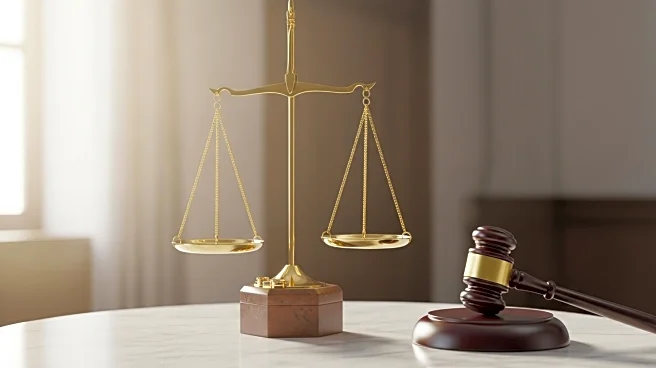What is the story about?
What's Happening?
President Trump's administration has petitioned the Supreme Court to review the legality of his tariff policies, which have been deemed unlawful by lower courts. The case, known as Trump v. V.O.S. Selections, presents a complex legal scenario where Trump's own arguments inadvertently highlight the tariffs' potential illegality under the 'major questions doctrine.' This doctrine, recently applied by the Supreme Court to limit executive power, could be pivotal in determining the outcome. The tariffs, described as Trump's most significant economic initiative, aim to address trade deficits and generate substantial revenue. However, their economic impact and legal standing are under intense scrutiny.
Why It's Important?
The Supreme Court's decision on Trump's tariffs could have far-reaching consequences for U.S. trade policy and executive authority. If the Court applies the 'major questions doctrine' consistently, it may invalidate the tariffs, affecting international trade relations and domestic economic strategies. The case underscores the tension between executive power and judicial oversight, with implications for future administrations. A ruling against the tariffs could lead to significant economic adjustments, impacting industries reliant on international trade. Conversely, a decision in favor of the tariffs might embolden executive actions in economic policy, setting a precedent for expansive presidential authority.
What's Next?
The Supreme Court's review of the case will be closely watched by legal experts, policymakers, and international stakeholders. The decision could influence the application of the 'major questions doctrine' in future cases, shaping the balance of power between the executive branch and the judiciary. Depending on the outcome, industries affected by the tariffs may need to adjust their strategies, while lawmakers might consider legislative responses to clarify executive powers in trade policy. The case also highlights the broader debate over judicial intervention in economic decisions, with potential implications for the separation of powers.
















